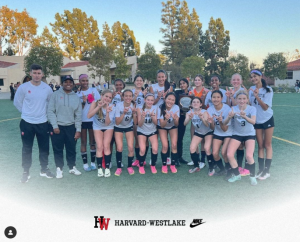By Ryan S. Kim ’19
Interview with Paul Wernick, executive producer and writer of “Deadpool”
Q: I remember seeing the test footage that was leaked on the internet about a year ago. How does it feel to finally see your movie on the big screen?
A: It’s so thrilling; we’ve been on this project my writing partner Rhett reuse and I for six and a half years. Ryan Reynolds has been trying to get it made for 11 years. Its been a real difficult journey to get it to the big screen. Getting a movie made in Hollywood, I often describe it as rolling a big boulder up a hill, and often times It will roll right back on top of you and crushes you. And a lot of times it did over and over again. And to finally see it come to life and how audiences are reacting. Its just absoultuly thrilling, one of the greatest joys in my professional career
Q: Over the course of those six and a half years, how much did the script change.
A: Well its interesting, our original script, we wrote in 2009. We were hired in 2009 and finished the first draft in 2010. We wrote another script in each of the subsequent years leading up to 2015. And it changed a lot, and it didn’t change at all, if that makes sense. I’d say that about 70 % of the original script stayed the same. At one point in the process we wrote a PG-13 draft, that was very different from the current movie. Most of the changes were made due to budget issues, we had to trim budget. And some were creative decisions, we changed villains and added a character. But as far as the general tone of the movie and the general structure its largely stayed the same from the original draft.
Q: The writing is fast-paced, smart. It sounds like people are actually talking to each other. How do you achieve something like that?
A: What happens, is you imagine. Writing is creating an imaginary world in your head. It’s voices speaking to you, you know ryan has always been the voice of Deadpool in our heads. He’s a fast-talking hilarious kind of guy. So it was very easy for us to bring that to life in a way that sounds like Ryan like Deadpool, a fast talking, self deprecating kind of character.
Q: Continuing with the idea of the script. My dad told me about a show called Moonlighting, where the script would often be extremely long, because the actors would banter back and forth so quickly. How long was your final script?
A: The final script interestingly wasn’t that long. Id say that the shooting script was about 108 pages long. Aaron Sorkin, whos most famous for the fast-talking style, I think his script for Social Network was 165-170 pages. Scripts you can generally equate one page of the script for one minute of screen time. Or at least that’s how we think of it. And that’s about write because, again our script was 108 pages, the movie I think is 148 minutes long, which actually works out. But I think that its really Aaron Sorkin whos most famous for the fast talking character, his scripts are considerably longer, ours don’t really go over 115 pages. We just squeeze it in.
Q: The opening of the film. In Empire Strikes Back, there are not opening credits and it goes straight into the action. And with your film, it marries a huge action sequence, special effects, and jokes instead of titles. How did you think of something like this?
A: A lot of superhero movies, don’t begin with opening credits, its just the end credits. They just start and jump in. We wanted to set the tone for this movie, right at the very beginning with the opening credits. This is something you’ve never really seen before, its funny, its irreverent. And this was sort of a way for us to do this, in a more elegant way. The audience knew that this wasn’t your father’s superhero movie. That this was something very very different that their used to seeing. Usually there are Hollywood rules for opening credits, the actors, the writers guild, the producers have specific requirements for opening credits, in terms of what order the crew is listed. Because we didn’t name anyone specifically, because there were no proper names, we were able to have fun with it. We didn’t need to abide by any of the guild rules.
Q: A lot of fun is poked at Ryan Reynolds. The Green Lantern. And Hugh Jackman and Wolverine. Were they cool with that?
A: Whats so nice is that Ryan is very self deprecating he likes to make fun of himself. Hell be the first to tell you that Green lantern was a misstep. That Wolverine origins, the portrayal of deadpool was a misstep. So in ways it allowed us to make fun of those moments. Because that’s our audience. The people that came to see this movie, and enjoyed this movie. Probably didn’t enjoy Green lantern or deadpools portrayl in wolverine. So we always joke, it was alittle like therapy for ryan, to be able to make fun of those missteps. Also because Deadpool is such a hyper aware character, he knows that hes in a movie. He addresses the audience, breaks that fourth wall. Allowing for the audience to have fun with it, to make fun of Ryan Reynolds and green lantern and wolverine.
Q: For me this movie has pushed the boundaries of what a Super Hero movie can be. I’ve never seen anything like it before. Leaving the theater, I feel like I got my moneys worth. And with some other movies I didn’t necessarily feel this way. With Batman v Superman and all of these big super hero films set to release. Now everyone is going to have to match Deadpool. How do you feel about where your headed and what do you have planned next for Deadpool?
A: I love the super hero genre. Its such a fun genre. And there are some great ones out there. Avengers, Iron Man, Dark Knight, there are some absolute great ones, and then there are some not so great ones. Its like any genre of movie, there will be good ones and some not so good ones. Now it’s a high bar that film makers have to clear, because there have been so many great super hero films. As for whats ahead for deadpool next, were gonna begin writing the sequel soon. The numbers came in, and there great, the movie is breaking all kinds of records. So I think the writing is on the wall, that we will be diving into the sequel very soon. But overall, Id say more of the same. It’s going to be irrevrant, hes going to break the fourth wall. It’s an antiheros journey. Deadpool is not a good guy. Hes not a superhero, hes an antihero strangely. But I think it allows people to relate to him. People are so used to these squeaky clean superheroes. And theres the wish fulfillment, that when the superhero puts on the mask, you imagine yourself in the role as that hero. At least for me that’s what it was like watching when I was a kid. Even now you imagine yourself in that role. For deadpool I think its less about wish fulfillment and more about relatability. Hes a character that missteps, that makes bad decisions. He isn’t that squeaky clean good guy. So I think were gonna try and do more of the same. Same tone. Same irreverence. Same level of action with a really fun story wrapped around it.
SPOILERS
Cable is a big character in that world, with deadpool and x force. In the tag of the movie, he mentions that cable is gonna be in the sequel. Our hope is that it will be a deadpool storyline with cable introduced in that sequel.
Q: In terms of the structure, the film uses flashbacks. But cuts in and out of the first action sequence. How did you come up with the timeline?
A: We wrestled with this idea of telling an origin story. This idea of starting at the beginning and how he got his super powers. It’s a very traditional superhero trope, you know the radioactive thing giving the hero their powers. Peter Parker was bit by the radioactive spider. So we wanted to kind of turn that on its head. Start in the present, as deadpool, grab the audience by the throat right away. See him in the costume, see him shooting, and then back off and really explain how he got where his was. That non linear structure allowed us to back in and out of time and space. In a way that made it new and interesting. And hopefully kept the audience of their seats. Also, it had to do with our budget. This movie was made for a much smaller movie then most superhero movies our made. By stretching that first action sequence out over the first act of the movie. It allowed the audience to get their action while not breaking the break. One set piece that stretched over the course of the first 45 minutes of the movie jumping in and out of time and space. That allowed us to give the audience what they craved while not spending 200 million dollars. That was another reason. Tone also was a big part of it. When deadpool is deadpool. When Wade is Deadpool, hes very irreverent and silly and ridiculous. But leading up to that, his life is very tragic, a character with cancer, a character who makes wrong decisions, theres a darkness to it. By bouncing from the present where hes deadpool and silly, to the past when hes about to become deadpool when his life is dark and tragic. By bouncing between those tones. It allowed us to be more consistent with the tone of the movie. The problem is if you told it linearly, from the start to finish. What would happen is that Wade’s tragic life would stretch over the course of the first 45 minutes of the movie. And then youd switch into deadpool, and hed be silly and outrageous and crazy. That tonal shift would make it feel like two different movies.
Q: How do you take a character that fans love from a comic book origin and build it into a whole film that is so original?
A: Before my partner and I were hired for the job, we never had read a dead pool comicbook. So when we auditioned for the job, when our agent called us to tell us they were making a deadpool movie. The first step was to familiarize ourselves with Deadpool comics. And that meant reading all the runs. Theres been twenty five years of Deadpool comics. We are in the 25th anniversary of Deadpool’s creation. So many great authors, Rob Liefeld, Fabian Nicieza, Joe Kelly. There have been some great runs. The main thing for us was just to immerse ourselves, get the flavor and feel, and the tone and the texture of the character. And then set it aside and create our own story. As screen writers, were not hired to mimic the comics, youre hired to bring something fresh and new to the table. Absorb it set it aside, then set it aside and create your own story. Rob Liefeld, the creator of Deadpool, paid us the ultimate compliment in saying that our movie will become the seminal story of deadpool. Setting aside all those twenty five years of comics, that’s a pretty amazing compliment for him to give us.
Q: There are two X men characters in the film. Why did you choose to incorporate the more well known Colossus with the unknown Negasonic Teenage Warhead?
A: Colossus was in the first draft of the script. And what he provided us was the squeaky clean X Men, versus the rude and crazy Deadpool. It gave us the perfect contrast. Colossus is this shiny gleaming hall monitor, and Deadpool is the class clown. By pitting those two against one another. It allowed Colossus to be the perfect straight man, to Deadpool’s craziness. Negasonic was a late add to the script. And Negasonic Teenage Warhead has only been in one comic. So she’s very little known in the universe. The only reason we chose her was because of the name. Negasonic Teenage Warhead, we just fell in love with that. How much fun would a character like Deadpool have with someone name Negasonic Teenage Warhead. Take a moody teen, she plays it like she’d rather be anywhere else. How fun would it be shes in this crazy world that has that wish fulfillment? Oh my god, what would I be like to be in that world. And all she can think, is ugh I really don’t want to be here. Those two character really provided us the perfect contrast for Deadpool and his craziness in two very different ways. Whats interesting is that in the comics Negasonic has psychic abilities. We thought my god, her name is Negasonic Teenage Warhead, she should blow stuff up. That was one of the few things that we at Fox had to reach out to Marvel and ask if we could change her powers and they were gracious enough to let us do so.






